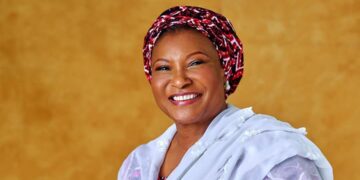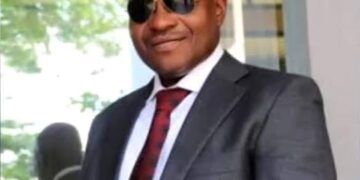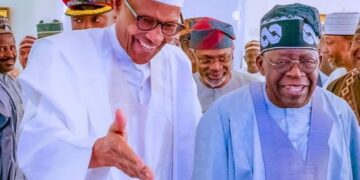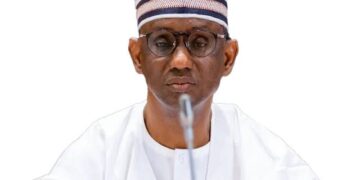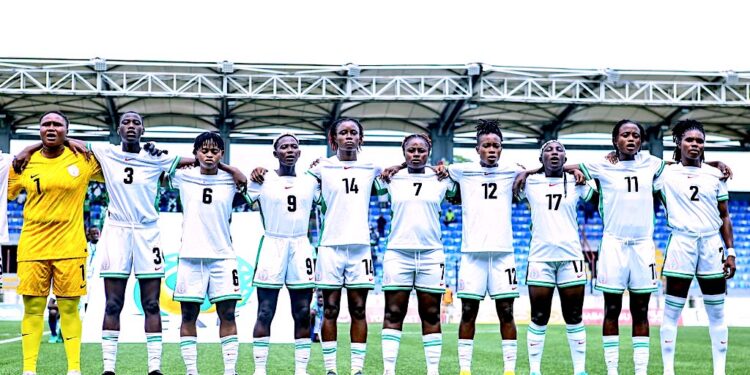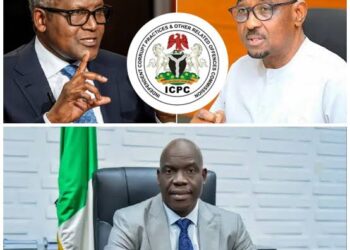Nigeria’s Taekwondo Prodigy, Ogechukwu Kalu, Off To Inaugural African Schl Sports in Algeria
Nigeria’s Taekwondo prodigy, Ogechukwu Kalu, has departed for Algeria to represent the country at the inaugural African School Sports Games.
The News Agency of Nigeria (NAN) reports that the young athlete left via the international wing of the Nnamdi Azikiwe International Airport, Abuja, in the early hours of July 23.
The maiden edition of the African School Sports Games commenced on July 23 in Algeria and is scheduled to run until August 6.
Kalu, a 16-year-old multi-talented athlete from Abia State, is a product of Rangers International FC Foundation’s MentorMe initiative and serves as an ambassador for the Cope and Live Mental Health Awareness Foundation’s Multi-Sports Framework.
He will be competing in the Taekwondo male event, where he aims to secure a podium finish.
Through the MentorMe programmr, Ogechukwu has developed vital mental and emotional skills, allowing him to transform anxiety and pressure into strength—equipping him to proudly represent Nigeria on the international stage.
Rangers International FC Foundation, in partnership with the Cope and Live Mental Health Awareness Foundation, is also expanding its support through the CoLi Mental Health Academy (www.coliacademy.org). The initiative provides basic mental health training, counseling tools, and personal development courses to help individuals unlock their potential and achieve their dreams.
NAN also reports that Kalu is a student of Government Science Technical College, Abuja, where he is studying Electrical Installations and Maintenance Work. He is the younger brother of Kalu Chijioke (Jnr), who had qualified for the 2025 Federation of International Sports University (FISU) Games.
The FISU World University Games—one of the world’s largest multi-sport events—is currently taking place in Germany from July 16 to July 27, across five cities in the Rhine-Ruhr region, including Bochum, Duisburg, Essen, Hagen, and Mülheim an der Ruhr, as well as in the capital, Berlin.
Kalu Chijioke (Jnr), an undergraduate student of Statistics in the Federal University of Technology, Owerri, (FUTO), was seen as a strong medal prospect for Nigeria.
However, he was unable to participate due to failure to meet the registration deadline—an outcome blamed on poor planning, corruption, and maladministration by FUTO sports officials responsible for the athletes’ preparation, documentation, and accreditation.
When contacted, FUTO’s Director of Sports, Mrs. Patience Nnennaya, initially declined to comment, but later stated that only the Nigeria University Games Association (NUGA) could address preparations for the event.
Similarly, Prof. Chikwendu Orji, Dean of Student Affairs at FUTO, remarked at the time that he was “hopeful FUTO would participate” in the Games, despite the missed deadline.
NUGA President, Prof. Bawa Muhammed, expressed disappointment in several Nigerian universities for their lack of commitment, which hindered fundraising efforts and deprived qualified athletes of the opportunity to showcase their talents globally.
Speaking on FUTO’s failed registration, Prof. Bawa said:
> “FUTO did not pay their dues in time, and the portal was eventually closed. This is unacceptable, especially for the future of students who have trained and prepared extensively for this competition. Our talents must not be allowed to slip away from our hands.”
CSP Kalu Chijioke (Snr), father of the affected athlete, criticized the school’s handling of the situation, recalling that FUTO had previously produced Olympians such as Chika Chukwumerije and Elizabeth Anyanacho.
> “I owe my son a duty to defend him, no matter what it takes. As Director of Sports, what else should be your legacy?”
“Even if the school may claim it lacks funds,it is her responsibility as the director of sports who appreciates the infinite possibilities of sports, to inform the management of the enormous benefits that could accrue to the university through FISU participation.”
He also questioned how youth restiveness could be addressed if talented young people—especially from the South East—are denied access to opportunities available to their peers across other parts of the country.(NAN)


